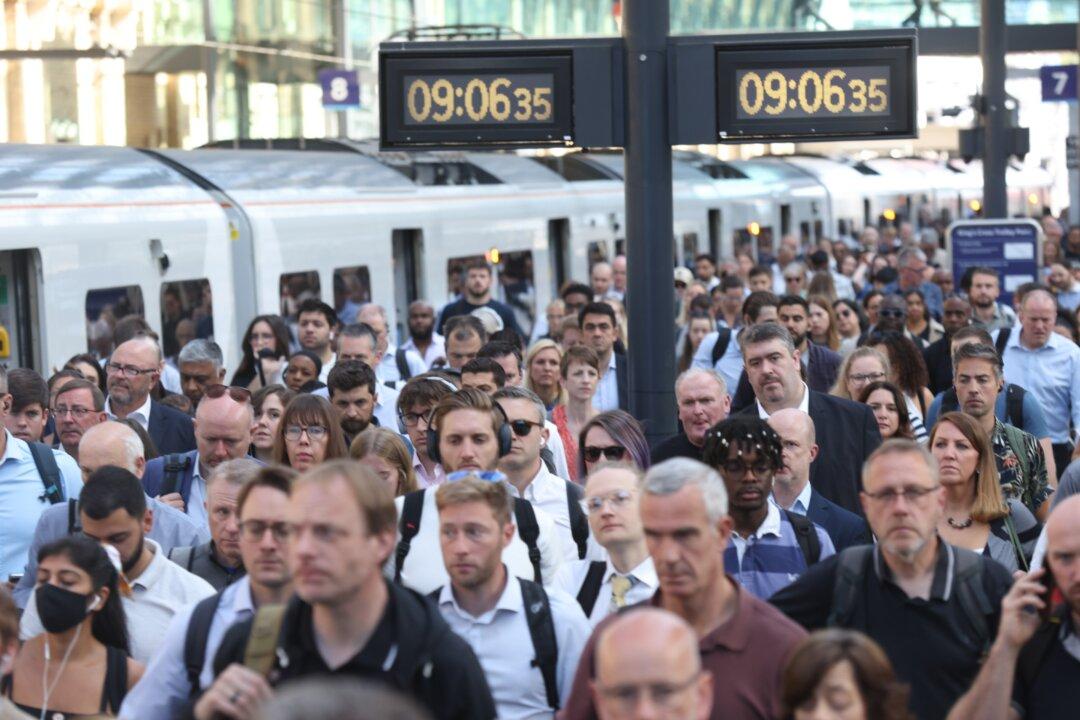The British government has vowed to “hold the line” against rail unions’ demand for higher salaries, as passengers continue to suffer from the chaos caused by strike action.
Some 40,000 members of the Rail, Maritime, and Transport Workers’ union (RMT) walked out on Tuesday after rail operators refused to agree to the union’s demands including a 7 percent pay rise.





